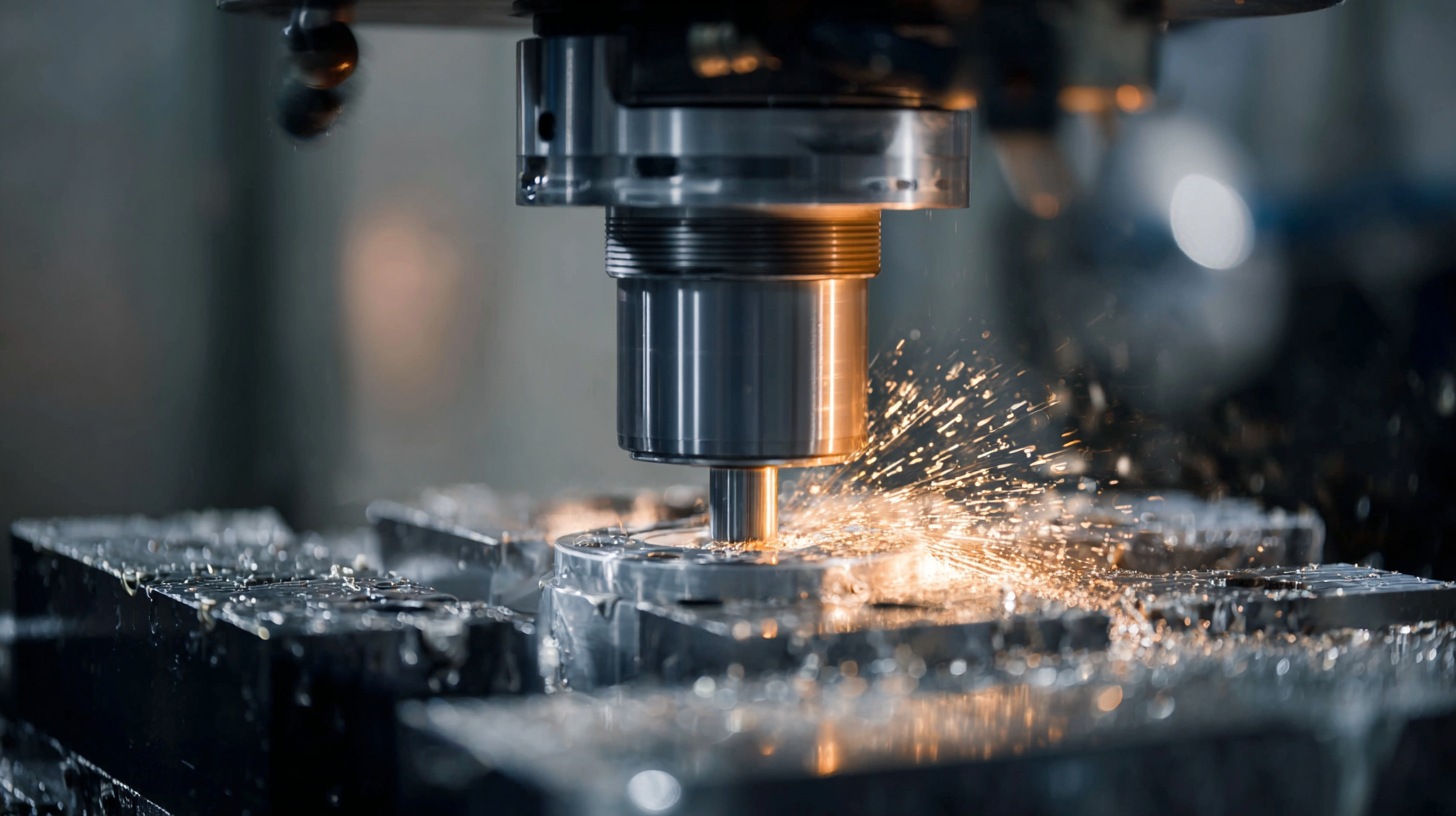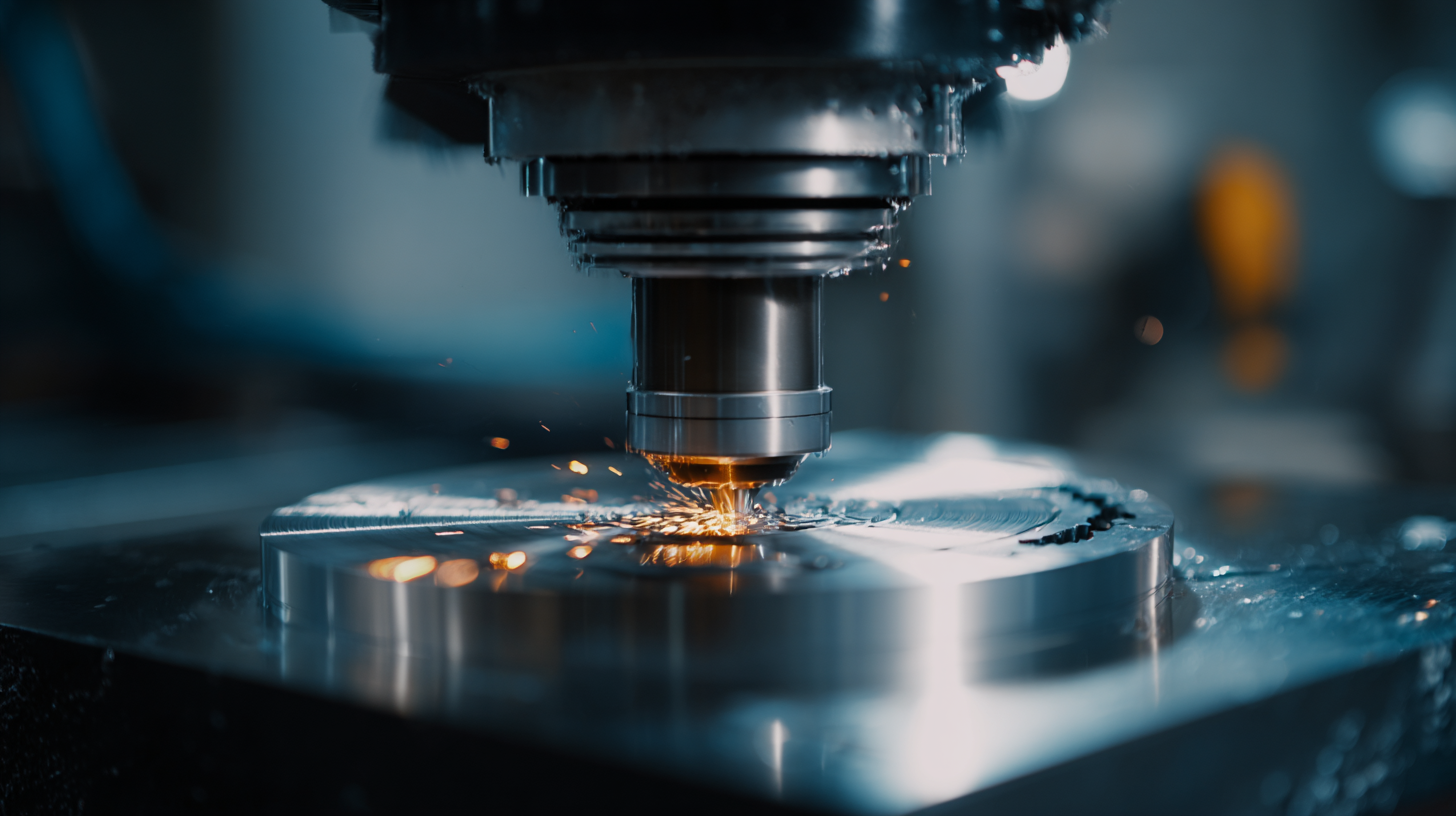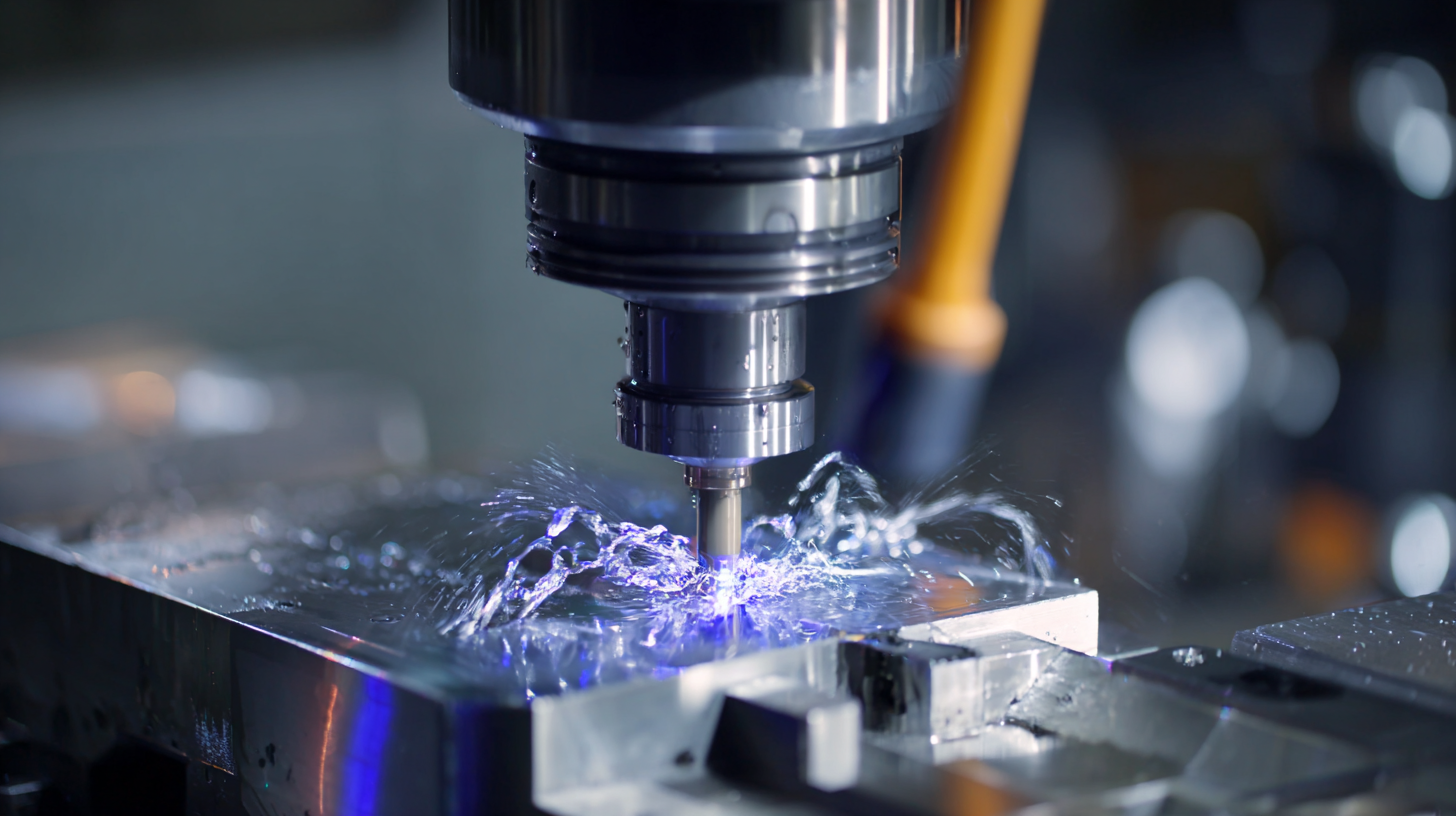Unlocking Precision: How CNC Solutions Revolutionize Modern Manufacturing Processes
In the rapidly evolving landscape of modern manufacturing, CNC solutions have emerged as game-changers, offering unparalleled precision and efficiency. According to a report by MarketsandMarkets, the CNC machine market is projected to reach $117.2 billion by 2025, driven by the increasing demand for high-quality and complex parts across various industries. The adoption of CNC technologies not only streamlines production processes but also minimizes human error, enhancing overall productivity. These advancements have enabled manufacturers to achieve tighter tolerances and more intricate designs, which are essential in sectors such as aerospace, automotive, and medical equipment. As we explore the transformative impact of CNC solutions, it becomes evident that embracing this technology is crucial for companies aiming to maintain a competitive edge in today’s manufacturing environment.

Impact of CNC Technology on Manufacturing Efficiency
In the realm of modern manufacturing, CNC (Computer Numerical Control) technology has emerged as a game changer, dramatically enhancing efficiency across various processes. By automating tasks that were once time-consuming and labor-intensive, CNC solutions enable manufacturers to achieve precise specifications with minimal human intervention. This level of accuracy not only reduces waste but also ensures consistent quality, leading to higher customer satisfaction and loyalty.
**Tip:** To maximize the benefits of CNC technology, manufacturers should invest in training their workforce. A well-trained team can leverage advanced CNC functions, troubleshoot issues swiftly, and optimize production flows, resulting in even greater efficiency gains.
Furthermore, the integration of CNC systems into manufacturing processes allows for greater flexibility in design and production. With the ability to quickly switch between different tasks and adapt to varying product demands, companies can respond promptly to market changes without significant downtime. This adaptability is crucial in today’s fast-paced business environment where staying ahead of competitors hinges on operational efficiency.
**Tip:** Regular maintenance of CNC machines is essential to maintaining optimal performance. Establishing a routine maintenance schedule can prevent unexpected breakdowns and ensure that machines operate within their best capacity, thereby supporting continuous production.
Unlocking Precision: How CNC Solutions Revolutionize Modern Manufacturing Processes
| Dimension | Before CNC Implementation | After CNC Implementation | Improvement (%) |
|---|---|---|---|
| Production Speed (units/hour) | 20 | 50 | 150% |
| Material Waste (kg) | 10 | 2 | -80% |
| Labor Costs ($/hour) | 30 | 25 | -16.67% |
| Setup Time (minutes) | 120 | 30 | -75% |
| Quality Defects (%) | 5 | 1 | -80% |
Cost Reduction Strategies with CNC Solutions
CNC (Computer Numerical Control) solutions are transforming modern manufacturing processes by offering cost reduction strategies that significantly enhance operational efficiency. According to a report by Deloitte, businesses that implement CNC technology can reduce production costs by up to 30% through increased automation and precision. This technology minimizes material waste and lowers labor costs, allowing manufacturers to allocate resources more effectively. Furthermore, the integration of CNC machines into production lines reduces cycle times, which not only expedites delivery but also maximizes throughput.
In addition to direct cost savings, CNC solutions contribute to improved product quality and consistency. A study conducted by the National Association of Manufacturers (NAM) found that companies leveraging CNC capabilities had a 25% decrease in defects and rework costs. The ability to produce complex geometries with tight tolerances means that manufacturers can produce high-quality products that meet the stringent demands of today's market. By investing in CNC technology, manufacturers can not only lower their operational expenses but also enhance their competitive edge in a rapidly evolving industry landscape.

Enhancing Product Quality through Precision Machining
Precision machining is the backbone of modern manufacturing, significantly enhancing product quality and operational efficiency. With advancements in CNC technology, manufacturers can achieve unparalleled accuracy in their production processes. This level of precision not only reduces material waste but also ensures that components fit together seamlessly, meeting stringent quality standards required in today’s competitive markets.

As industries like electric vehicles evolve, the need for precise manufacturing processes becomes even more critical. The integration of smart manufacturing technologies allows for real-time monitoring and adjustments, further boosting efficiency. Events such as the upcoming electronics production equipment exhibition in Shanghai underscore the importance of showcasing innovative solutions that drive quality and performance across the supply chain. As manufacturing continues to embrace digital transformation, CNC solutions will play an essential role in redefining production logic and setting new benchmarks for product excellence.
The Role of Automation in Modern CNC Processes
The role of automation in modern CNC processes is pivotal in enhancing efficiency and precision in manufacturing. According to a report by MarketsandMarkets, the global CNC machines market size is expected to grow from USD 63.58 billion in 2021 to USD 100.63 billion by 2026, with a significant portion of this growth driven by advancements in automation technology. Automated CNC systems reduce human error, streamline production workflows, and increase output consistency, allowing manufacturers to meet stringent quality standards.
Moreover, the integration of IoT (Internet of Things) and AI (Artificial Intelligence) into CNC processes has further transformed the landscape of manufacturing. A study published by Gartner indicated that by 2025, about 75% of organizations will incorporate AI into their manufacturing processes, enhancing real-time decision-making and predictive maintenance. This shift not only optimizes machine utilization but also leads to substantial cost savings and reduced downtime. The automation of CNC processes thus plays a critical role in driving productivity and innovation within the manufacturing sector, paving the way for smarter and more efficient production environments.
Unlocking Precision: CNC Solutions in Modern Manufacturing
This chart illustrates the efficiency improvements in manufacturing processes attributed to automation in CNC systems over the years. The data encompasses the reduction in production time and increase in precision, highlighting the transformative impact of CNC technology.
Future Trends in CNC Technologies and Manufacturing
The future of CNC (Computer Numerical Control) technologies in manufacturing is poised for remarkable advancements, driven by the integration of digital manufacturing technologies. According to a recent report by Custom Market Insights, the global CNC machine market is projected to witness significant growth, with a demand analysis indicating a shift toward automation and smart manufacturing techniques. This trend underscores the necessity for businesses to adopt innovative CNC solutions that enhance efficiency and production capabilities across various industries.
A noteworthy development in this landscape is the introduction of next-generation CNC routers that incorporate AI-powered features aimed at improving operational efficiency and sustainability. The latest advancements promise not just better performance but also a reduced environmental footprint, aligning with the growing demand for sustainable practices in manufacturing. Industry reports suggest a compound annual growth rate (CAGR) of approximately 5.1% for plate rolling machines, reflecting the increasing investment in advanced manufacturing technologies, which are essential for meeting the evolving needs of the market. As manufacturers embrace these cutting-edge solutions, we can expect profound changes that will further optimize processes and contribute to the overall growth trajectory of the sector.
